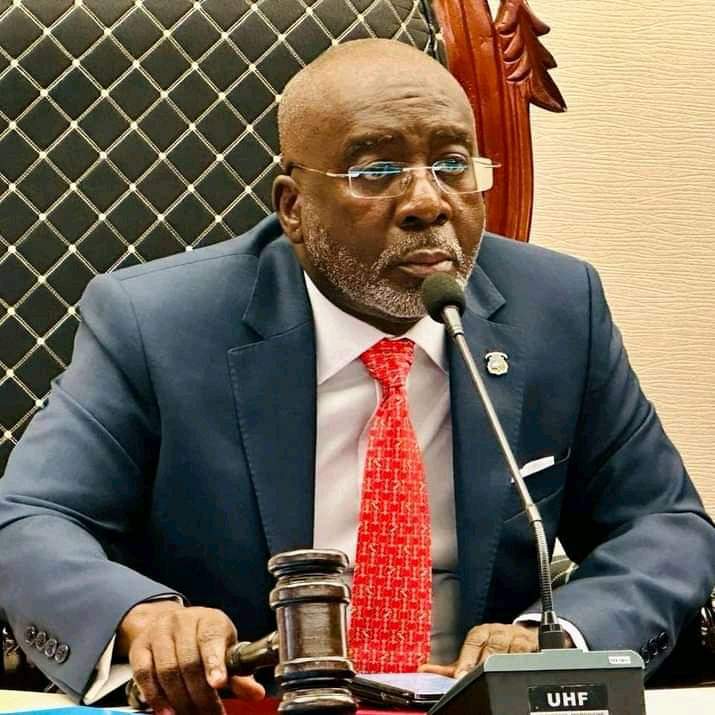In recent weeks, Liberians have closely observed heated debates among their House of Representatives regarding allegations against Speaker J. Fonati Koffa. Koffa’s revelations on Spoon Talk highlighted an unseemly practice among some legislators: budget padding, where lawmakers inflate budget estimates to secure personal kickbacks. This practice contravenes the intention behind the national budget process enshrined in the Liberian Constitution, which designates the Executive as the proposer of budget estimates, subsequently reviewed and approved by the Legislature. Ideally, these estimates should reflect well-planned initiatives from government institutions that align with national priorities. However, history shows that the National Legislature often oversteps by inserting additional projects, sometimes lacking due diligence, which can result in poorly conceived expenditures that don’t fulfill public needs.
Over the past 18 years, the budget allocated to the National Legislature has skyrocketed, illustrating a trend of excessive financial increases rather than critical investments in public welfare. For instance, the budget for the National Legislature has dramatically increased from USD 9.4 million in Fiscal Year 2006-2007 to USD 57.9 million in Fiscal Year 2024. These budgetary increases point to challenges in maintaining alignment between budget allocations and the actual needs of constituents. Moreover, the phenomenon of phantom projects, often engineered by colluding ministries, has emerged as a troubling concern, leading to the misallocation and fraudulent circulation of funds meant for legitimate government projects. Koffa’s call for transparency in the legislative budgeting process underlines the need to redirect these funds toward initiatives that are rigorously planned and aligned with established national objectives.
The alarming trend of budget padding and corruption in the National Legislature has profound implications for governance and public trust. Various committees have reportedly strayed into corrupt territory, coercing Ministries, Departments, and Agencies (MDAs) for bribes and threatening to cut their budget allocations if they resist. These corrupt practices not only undermine the fundamental role of legislative oversight but also mirror organized crime rather than accountability. The 2024 funding allocation of US$13.2 million for Legislative Support Projects further showcases the issue, with representatives being handed sums to fund their districts. Yet, the manipulation of the project allocation process highlights a perverse incentive structure whereby legislators prioritize personal gain—with many projects unmet and funds often squandered.
Compounding the issue is the absence of transparency in the budgeting process itself. As detailed budgets exist without oversight or accountability, the multiple increases to the National Legislature’s budgets raise significant questions. For example, in 2023, the Legislature was allocated $51,614,330; however, the outturn report revealed expenditures amounting to a staggering $67,963,832, with discrepancies not clearly justified. This lack of financial oversight amplifies calls for reforms that ensure fiscal responsibility within the legislature and help restore public faith in its operations. Consequently, all eyes are on political leaders to institute measures that will root out corruption and promote a culture of accountability that serves the interests of all citizens.
The principle of representative democracy hinges on legislators advocating for the public good, derived from their electoral legitimacy. When this mandate is undermined by personal agendas focused on monetary gains, it erodes the sense of responsibility legislators owe to their constituents. As the National Legislature grapples with a tarnished reputation amid accusations of self-serving behavior, it must reassess its role and pivot toward genuine public service. Legislative intent should focus on advancing the national interest, countering the narrative of greed that has emerged over recent years.
To move forward and salvage the integrity of Liberia’s legislative body, proactive steps must be taken to ensure that budgeting processes align with genuine public needs rather than the personal interests of a few. The budget is intended as a tool for the public good and not a mechanism for exploitation by corrupt officials. Ultimately, through genuine collaboration between the Executive and Legislature, along with a commitment to transparency and accountability, Liberia has the potential to reform its governance structures and restore the public’s confidence in its legislative processes. The challenge ahead lies in dismantling entrenched practices and fostering a more equitable approach to resource allocation that benefits the broader populace rather than the privileged few.


